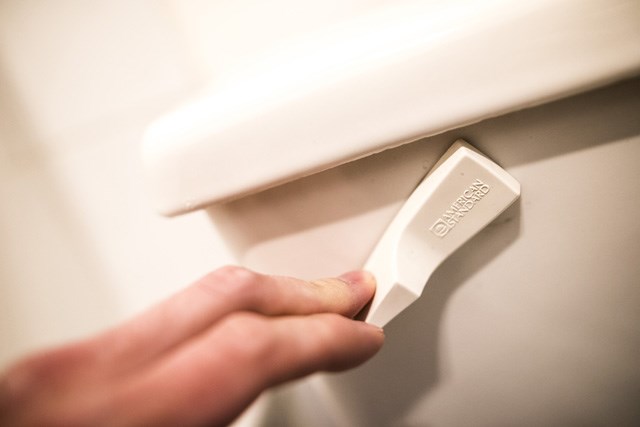Black Diamond taxpayers could face higher sewer bills in 2019 as the Town works towards cost-recovery for its sanitary operations. At its Nov. 7 meeting, Black Diamond Town council passed first reading to amend its water and sewer bylaw to change the way it bills customers. If approved, it will be similar to changes made to taxpayers’ water bills earlier this year where users pay based on water consumption and meter size. The current sewer rate applies an $86 flat rate for all users, regardless of water meter size. Multi-family and non-residential property owners pay an additional $2.36 per cubic metre exceeding 36 cubic metres of water consumption. “What we heard is council is looking for full cost recovery of the utilities, both the water and sewer,” Urban Systems planner Kris Nelson told council last week. “To cover not only operating costs but putting money in reserves for future capital costs, the current structure doesn’t generate enough revenue.” Nelson projects operating and maintenance costs to climb 23 per cent from 2017 to 2021 due to aging infrastructure and inflation. Nelson said taxpayers haven’t seen an increase in their sewer bills since 2015. “With the proposed rate structure changes, the intent is to get the utilities at $800,000 in 2019 to cover operations and maintenance expenses and put money away in capital reserves,” he said. “We need to get the utility to a place where it can cover its operations and capital requirements. “Just over $700,000 is being generated now.” The proposal for residential property owners is a $43 flat rate for 5/8-inch diameter water meters, plus $2.35 per cubic metre of water consumed. This means the average homeowner using 22 cubic metres of water every two months will pay $94.70, an increase of $8.70. The proposal for non-residential property owners calls for a $215 flat rate for two-inch water meters, plus $2.35 per cubic metre of water used. This means the average merchant using 200 cubic metres of water would pay $685 every two months, an increase from $469.05. “Every customer pays a $2.35 per cubic metre variable,” said Nelson of the proposal. “Those who use more pay more. It encourages efficient use of resources, which is going back to one of the objectives of the town.” Multi-family buildings with 1.5-inch water meters that use 166 cubic metres of water every two months currently pay $389.16, or $25.94 per unit. The sewer bill for such a building would increase to $605.16, or $40.34 per unit in a two-month billing cycle, representing an increase of $14.33 per unit. Nelson said multi-family units and meter size are among the inequities in the current billing system for sewer. The proposed flat rate ranges from $43 for 5/8-inch meters to $2,250 for six-inch meters. “If you have a bigger meter it has the ability to take on a bigger capacity, but if you’re not using that capacity with this rate structure those are the ones to get hit,” Nelson told council, adding he expects some building owners with larger meters and low water usage to change their meters. Coun. Jackie Stickel suggested the variable be reduced to $2.20 per cubic metre, rather than having it the same rate residents pay for water. Stickel said not all of the water goes down the drain. “I hear a lot of comments that the majority of people don’t put back into the sewer the same amount they take out of the water system,” she said. “Is there any kind of guideline to determine that?” Nelson said residential buildings put about 90 per cent back into its sewer, due to watering lawns and gardens, while non-residential and multi-family units tends to be closer to 95 per cent. Stickel made a motion that the variable be changed to $2.20 per cubic metre to better reflect those percentages. “I don’t think a difference of $14,000 a year is that much of a total overall budget kick for the Town,” she said. “We’re giving nobody any leeway or consideration to not use all the water. “I think $2.35 per cubic metre is too high. The taxpayers would be much more willing to accept $2.20 than the $2.35.” Stickel’s motion was defeated by council. Council is scheduled to give consideration for second reading of the amendment second reading at its Nov. 21 meeting. Another proposed change in the water and sewer bylaw addresses penalties for those who don’t pay their bills on time, said Sharlene Brown, chief administrative officer. “There wasn’t an accumulated penalty on each of the unpaid bills,” she told council. “We want to have five per cent each billing period for outstanding rates and we would like to have the bills paid by the 15th the month after.” If the proposed changes presented by Nelson are approved, they will come into effect on Jan. 1. An increase in sewer bills is expected to be a regular occurrence in Black Diamond to match increased expenses due to inflation, said Brown. A public hearing, to give taxpayers an opportunity to speak for or against the proposal, will take place at the Dec. 5 council meeting. For more details about the proposed bylaw changes go to town.blackdiamond.ab.ca




